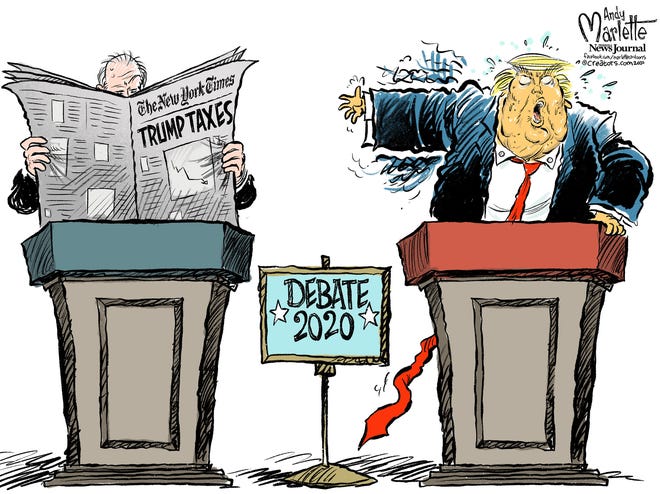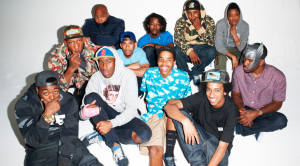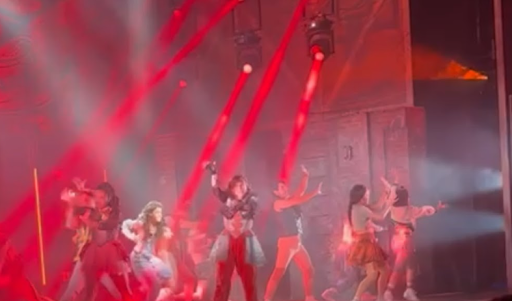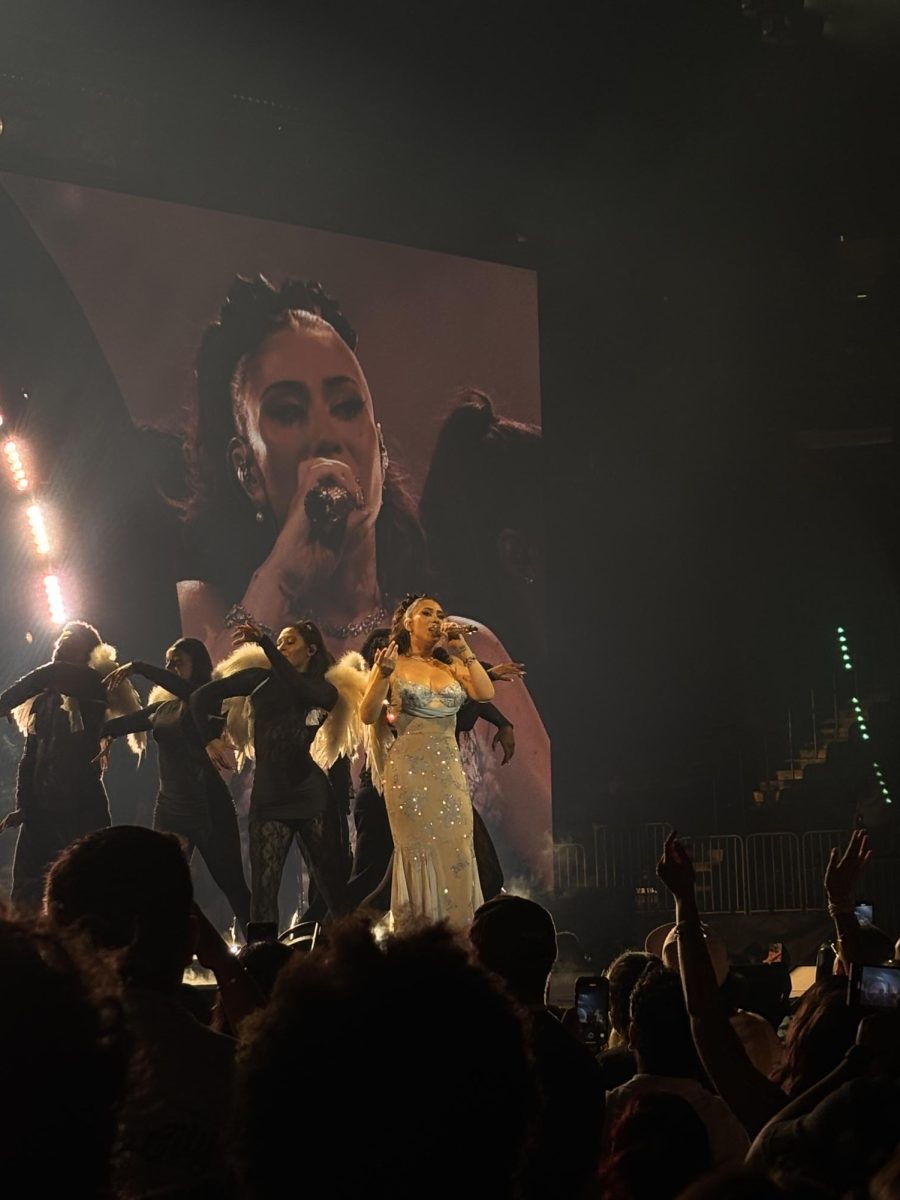Introducing a New Reality TV Show: the Presidential Debates
October 8, 2020
This is an opinion article piece. Ana Clara Monaco is a sophomore at Mendham who writes for Global & Domestic News. All opinions expressed in the following editorial are her own and do not necessarily reflect the views of The Patriot.
The idea was simple: two podiums housing the two major Presidential candidates placed abreast on a stage, while an off-screen moderator guided the discussion and proposed questions, allowing the candidates to respectfully dispute on a nationally-televised forum. The September 29 Presidential debate between Republican Donald Trump and Democrat Joe Biden, however, was remarkably chaotic and even laughable – strengthening the argument that this staple in the election cycle has become entirely unnecessary and only deepens partisan divisions within the country. This tradition, beginning informally with the 1858 Lincoln-Douglas debates, follows a set of quadrennially-altered, loosely-defined ground rules that the moderator will attempt to enforce. In the case of the 2020 debate, the rules were as such: Within six 15-minute segments, each surrounding a specific theme (political records, the Supreme Court, Coronavirus, the economy, race and violence, and the integrity of the election), the moderator proposes a question and allots two supposedly-uninterrupted minutes for the participants to respond. In a debate featuring a man who is known for his inability to comply with rules and another who lost his temper and labeled his opponent a clown, moderator Chris Wallace had no effective way to control the Presidential nominees and implement the regulations, instead of forced to raise his voice at the participants and, when that produced no response, sit back and watch as chaos ensued.
There are many arguments supporting Presidential debates as an essential part of the election and campaign process, but they fail to hold true in the age of social media and instant communication. Prior to the technological advancements that have become normality, residents in America had limited opportunities to observe their prospective POTUS’s mannerisms and platforms. The lack of hourly Twitter and campaign website updates forced debates into practice as a means of presenting the candidates to the public. The back-and-forth dialogue and rapid-fire responses created an unfiltered, side-by-side comparison of the two and inevitably swayed election results. Following the 1996 Nixon v. Kennedy debates – during which Nixon was perceived to be unprepared and nervous while Kennedy, made for television, dominated the event comfortably and effortlessly – approval rates of the latter spiked, and Kennedy ultimately won the election as a result of his impressive performance. A large majority of the public had not witnessed Nixon and Kennedy perform live under pressure and the roar of a crowd, as most news was derived from newspapers and door-to-door campaigning.
President Trump has released over 17,000 tweets since his declared-candidacy in June 2017 according to Wikipedia; Joe Biden has been promoting continuously via Instagram posts, website updates, and television ads. The plethora of media outlets and intensified range of communications have rendered debates virtually futile and even problematic, as proven on Tuesday night. The constructive conversation that is expected to occur between the participants is not guaranteed, and there is often an overlap of dialogue and a lack of respect towards the opponent. Fact-checking, which has been a sensitive topic heightened by moderator Candy Crawley’s shameful interjection in the 2012 Obama v. Romney debate, is not performed live during the debate but instead after during analysis, allowing participants to feed false information to the public without retribution. When practiced correctly and respectfully, the Presidential debates are quality campaign events and effective in strengthening supporter’s view of their candidate – yet this is wholly dependent on the cooperation of the Presidential nominees, who more often than not have proved themselves incapable of generating a civil discussion with the person vying for the same job.
Democratic and Republican media outlets alike have responded negatively to the Tuesday night debate, christening it a “hot mess” (Liz Peek of Fox News) and “90 minutes of chaos” (Shane Goldmacher of the NYT). The event featured an astounding lack of manners, as Trump deliberately heckled and interrupted the moderator and Biden alike. Biden was struggling to, as he put it, “get any word in with this [clown’s]” incessant interjections and repeatedly focused on speaking to the camera. Trump’s main goal seemed to be disorienting and confusing his opponent and his audience rather than presenting an agenda or argument, which he partially achieved by bulldozing over Wallace’s attempts at control and a refusal to answer the question asked. The inner children in both candidates reared their ugly heads throughout the debate: when the moderator brought Trump’s attention to the rules agreed upon by his team and reprimanded him for his lack of complacency, he called out Biden as well, saying “and him too”; and Biden, after one particularly unnerving bout of cross talk from Trump, exclaimed hopelessly, “will you shut up, man?”. Following the debate, the majority of reports featured the words ‘winner’ and ‘tie’, demonstrating the competitive atmosphere that has contributed to the toxicity of this tradition; focus on the matter has shifted from a showcase of abilities and a rallying cry to voters, becoming instead a blockbuster entertainment series akin to WWE wrestling match.
Although some have pleaded for the remaining debates to be canceled “for the sake of the country” (Washington Post) it is essentially impossible and unheard for this to occur. Regarded as a right in the United State’s democracy, this long-standing custom will most likely continue, but changes need to be implemented – possibly against Trump’s wishes, as he has expressed a firm belief that the moderator was partial towards Biden and already rejected attempts at altering the rules of upcoming debates (CNN). The nominees for the most powerful position in arguably the most powerful country in the world cannot behave like five-year-olds; the demeanor demonstrated by our country’s potential leaders would be not be accepted in a first-grade classroom, and much less before the critical eyes of 73 million global viewers. Whether it be to cut the microphones if interruptions occur, to introduce fact-checking during the event, or to hold separate interviews proposing the same questions and under the same circumstances minus the opponent present, the poor performance of both Donald Trump and Joe Biden has raised the conversation of altering the standing debate structure or abolishing the tradition entirely, as many agree that we cannot have a repeat of Tuesday night’s turmoil and confusion. The United States’ pitiful response to the global pandemic has been compared to that of third-world countries India and Brazil, a defendable and even understandable statistic; yet two grown men representing our country standing before the world and mirroring the conduct of toddlers is unheard of. Is this how we want our country to be perceived and judged before the world?










